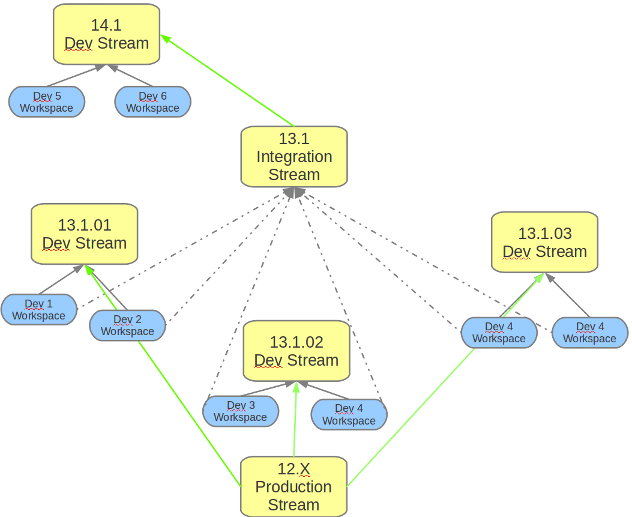What is the best strategy to setup streams where we need to roll back major change sets?

One answer
Comments
Tim - what is the best way to revert a large number of change-sets from a stream? So far we have not been successful in reverting change-sets from an Integrated stream (i.e. 13.1) without much difficulty. We would have to revert hundreds of change-sets (coming from the original stream i.e. 13.1.01). We would also have to deal with merge change-sets in 13.1 stream as 13.1.01, 13.1.02 and 13.1.03 are likely to modify many common components.
There really isn't another way to discard or reverse the change sets. You may want to take the approach in the original question to recreate the stream with the changes that you want. If you're been creating baselines before delivering changes, you can revert to that baseline where the unwanted changes don't exist. Then the changes you want delivered can be redelivered to the stream. It will likely require remerging but might be easier than trying to select all the changes you don't want so you can reverse them.